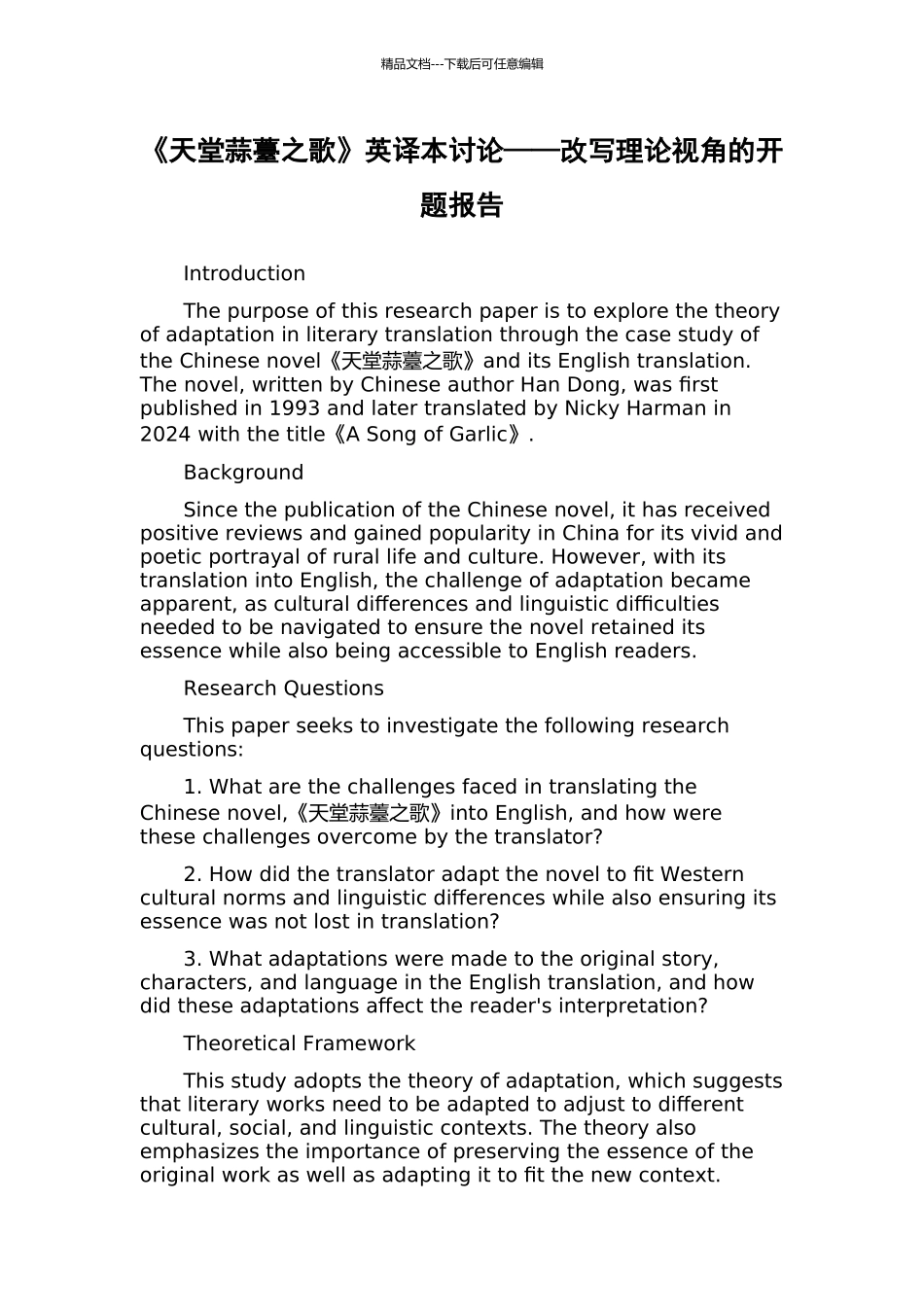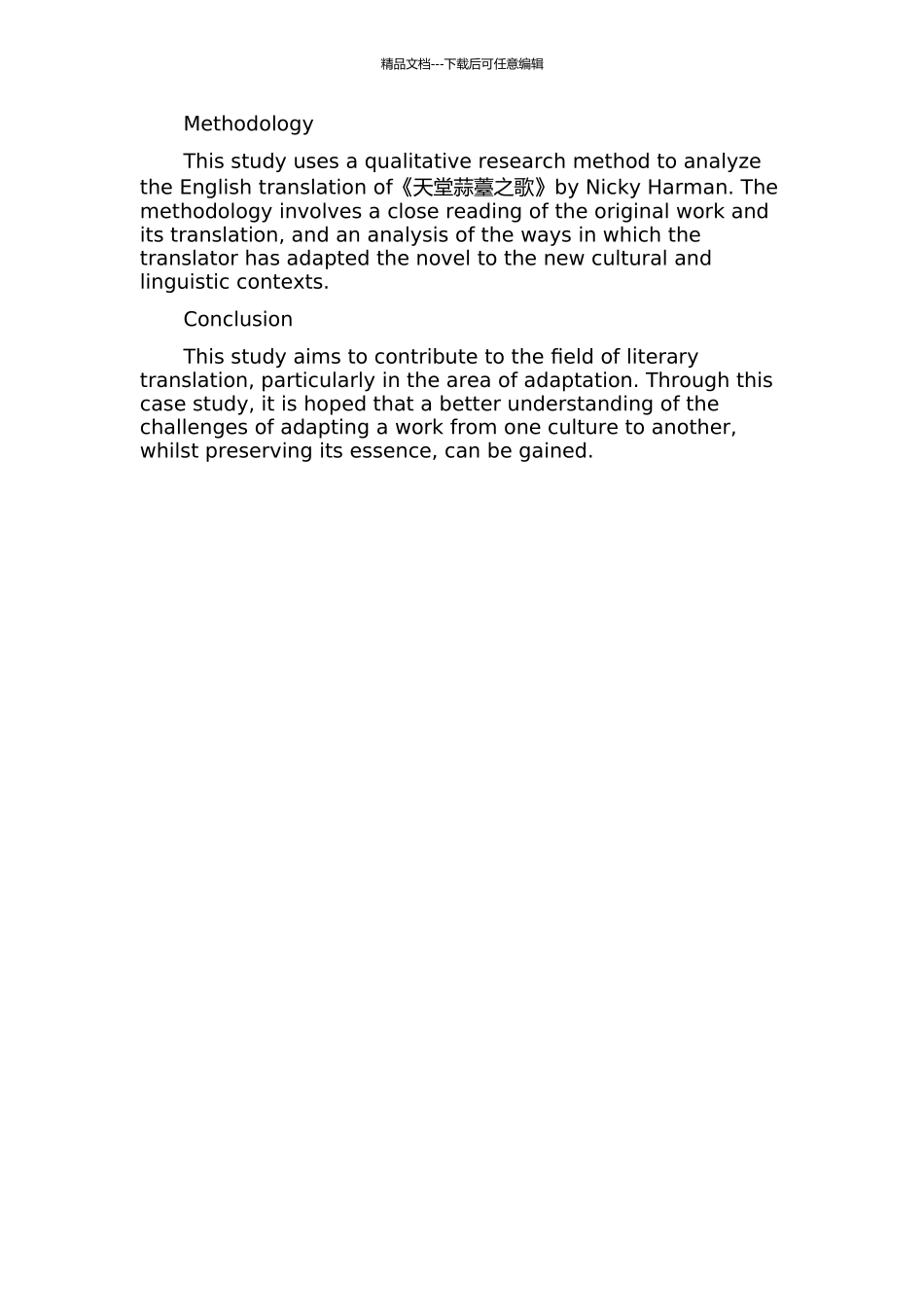精品文档---下载后可任意编辑《天堂蒜薹之歌》英译本讨论——改写理论视角的开题报告IntroductionThe purpose of this research paper is to explore the theory of adaptation in literary translation through the case study of the Chinese novel《天堂蒜薹之歌》and its English translation. The novel, written by Chinese author Han Dong, was first published in 1993 and later translated by Nicky Harman in 2024 with the title《A Song of Garlic》.BackgroundSince the publication of the Chinese novel, it has received positive reviews and gained popularity in China for its vivid and poetic portrayal of rural life and culture. However, with its translation into English, the challenge of adaptation became apparent, as cultural differences and linguistic difficulties needed to be navigated to ensure the novel retained its essence while also being accessible to English readers.Research QuestionsThis paper seeks to investigate the following research questions:1. What are the challenges faced in translating the Chinese novel,《天堂蒜薹之歌》into English, and how were these challenges overcome by the translator?2. How did the translator adapt the novel to fit Western cultural norms and linguistic differences while also ensuring its essence was not lost in translation?3. What adaptations were made to the original story, characters, and language in the English translation, and how did these adaptations affect the reader's interpretation?Theoretical FrameworkThis study adopts the theory of adaptation, which suggests that literary works need to be adapted to adjust to different cultural, social, and linguistic contexts. The theory also emphasizes the importance of preserving the essence of the original work as well as adapting it to fit the new context.精品文档---下载后可任意编辑MethodologyThis study uses a qualitative research method to analyze the English translation of《天堂蒜薹之歌》by Nicky Harman. The methodology involves a close reading of the original work and its translation, and an analysis of the ways in which the translator has adapted the novel to the new cultural and linguistic contexts.ConclusionThis study aims to contribute to the field of literary translation, particularly in the area of adaptation. Through this case study, it is hoped that a better understanding of the challenges of adapting a work from one culture to another, whilst preserving its essence, can be gained.

